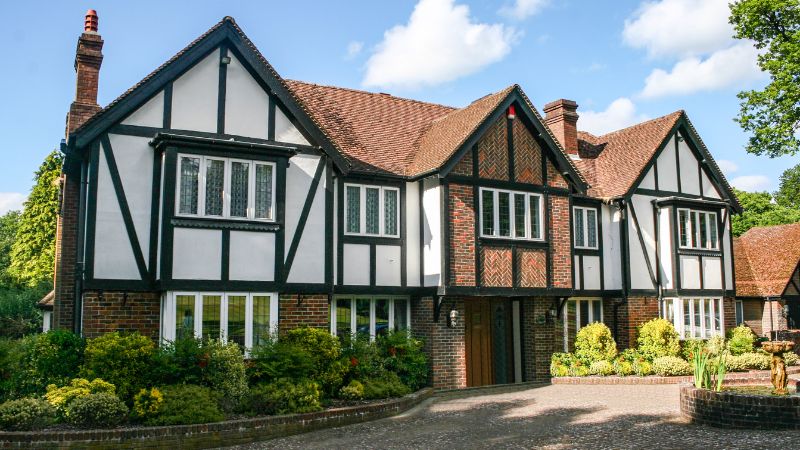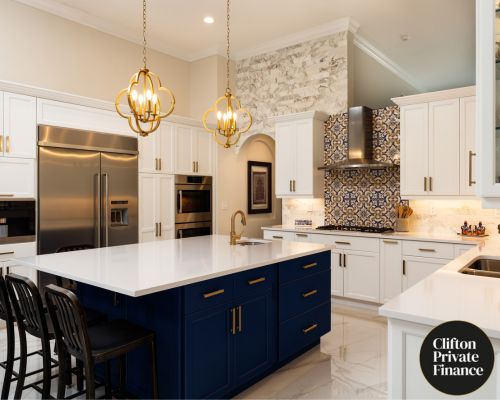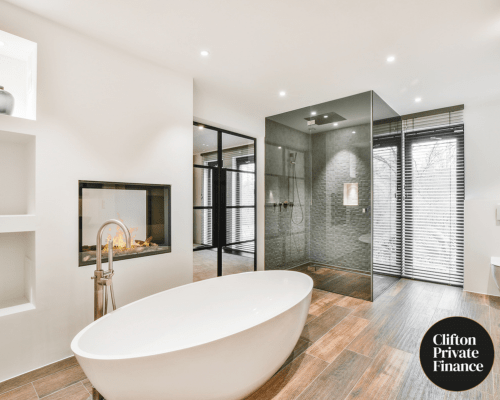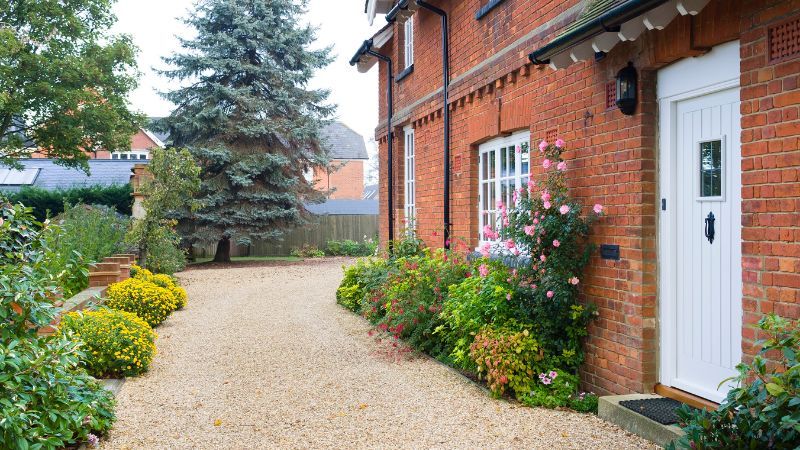Categories
How to Convert a Buy to Let to an HMO

If you convert a current buy to let to an HMO, you could generate over three-times the rental income. But there are some factors to consider.
In an era where diversification and resilience are paramount in investment strategies, the allure of House in Multiple Occupation (HMO) properties stands out. HMOs offer investors a unique opportunity to tap into the robust rental market, boasting higher yields compared to traditional buy-to-let properties.
With multiple tenants occupying individual rooms within a single property, HMOs not only diversify income streams but also mitigate the risk of rental voids—a significant concern for landlords. Beyond financial gains, HMO investments resonate with the evolving housing landscape, catering to the increasing demand for affordable shared accommodation, particularly among students and young professionals.
This surge in demand, coupled with flexible rental arrangements and potential for property appreciation, positions HMOs as a compelling option for investors seeking stable returns in an ever-changing market landscape.

Can I Turn a BTL into an HMO?
Yes, you can convert a buy to let property into a House in Multiple Occupation (HMO), but you'll need to consider certain regulations and considerations.
- Check the regulations in your area regarding HMOs. Different regions have different rules regarding the size of HMOs, safety requirements, and licensing.
- Ensure that your property meets the minimum size requirements for an HMO. The layout should also be suitable for multiple tenants, with adequate space for communal areas and sufficient bedrooms.
- HMOs are subject to stricter safety standards than standard rental properties. This includes requirements for fire safety, gas and electrical safety, and amenities like bathrooms and kitchens.
- In many areas, HMOs require licensing from the local authority. Ensure you understand the requirements for obtaining a license and that your property meets all the necessary criteria.
It's also worth thinking about how much you're willing to invest into a conversion like this and how long the necessary work will take to account for any potential losses.
Managing an HMO can be more complex than managing a standard rental property, but when approached in the right way, it can allow for a significantly higher rental yield and a rewarding experience as a landlord.
In this Guide:
How Much Does it Cost to Convert to HMO?
What is the Average ROI for an HMO?
Getting Finance to Convert a Buy to Let to an HMO
Are HMOs Still a Good Investment?
How Difficult is it to Get an HMO Licence?
Can Any House Be Turned into an HMO?
Can an HMO Licence Be Refused?
Do I Always Need an HMO Licence?
How Much Does it Cost to Convert A Buy to Let to HMO?
The full cost of converting one room to an HMO is typically just north of £10,000. On average, it could cost over £40,000 to convert your current rental property into an HMO.
But HMOs can typically offer three times the rental yield of a standard buy to let, because you can charge rent per room, and an HMO licence can also allow you take on more than three tenants.
Related: A Full Guide to Financing Your Next Property Renovation - Refurbishment Bridging Loans
What is the Average ROI for HMO?
HMOs boast an average return exceeding 7.5%, surpassing the typical 3.63% return from traditional buy to let properties. This substantial increase in rental yield underscores the appeal of HMO investments if you want to optimise your portfolio's performance. With the potential for significantly higher returns, HMO properties are attractive for savvy investors looking to capitalize on the rental market's potential.
HMOs are renowned for their higher rental yields compared to standard buy to let investments, offering a lucrative avenue for income generation.
How Much Rent Can I Get from an HMO?
Depending on the location and condition of your property, you can expect to earn between 500-700 per room with an HMO in 2024. This jumps to approximately £995 per room in London.
Check out the table below to see the monthly average per region.
|
Region |
Av. HMO Room Rent |
Av. Single Let Rent |
|
East Anglia |
£653 |
£1,553 |
|
East Midlands |
£563 |
£1,123 |
|
North East |
£546 |
£865 |
|
North West |
£597 |
£1,118 |
|
South East |
£735 |
£1,805 |
|
South West |
£651 |
£1,384 |
|
West Midlands |
£564 |
£1,143 |
|
Yorks. & Humber |
£557 |
£1,010 |
|
London |
£995 |
£2,631 |
|
Scotland |
£678 |
£1,038 |
|
Wales |
£578 |
£1,043 |
|
Average (excluding London) |
£653 |
£1,278 |
Comparison of average HMO & single let rents in England, Scotland, & Wales: Q1 2024 (The Independent Landlord)
Renting out individual rooms in an HMO allows you to set rents for each room separately. Depending on factors such as room size, amenities, and location within the property, you may be able to charge varying rents for different rooms, which could maximise your rental income.
Furthermore, in many cases, renting a room in a house or bedsit will be significantly cheaper than renting a house or apartment. This can make rooms in an HMO more attractive to new tenants, particularly if your property is situated in a student area or close to areas of employment for young professionals.
Getting Finance to Convert a Buy to Let to an HMO
It's possible that you're considering converting your current buy to let to an HMO, or maybe you've eyed your next investment property, but it needs work to be suitable for use as an HMO.
In the first case, you likely already have a buy to let mortgage on your property, so how can you finance what could be a significant conversion project?
If you already have a mortgage in place, you can:
- Remortgage to release equity from the mortgage on your property or a mortgage that you have in place on another property. This is a popular choice because a mortgage usually works out as the cheapest form of borrowing. But this will also extend the time it takes to pay off your mortgage.
- Take out a second charge mortgage on your property. In this case, you can borrow against the equity you have in your property and use these funds to convert to an HMO.
- Or, if you're expecting an influx of funds through the sale of another property or a business in the near future, you can take use a bridging loan. Bridging loans are short-term finance that can be used for refurbishments and conversions and repaid in a lump sum within the next 12-24 months.
If you don't already have a mortgage in place, for instance, if you're buying a property with aims to convert it to an HMO, you could finance it by:
- Taking out a bridging loan. Bridging loans are popular for their flexibility and are commonly used to renovate 'fixer-upper' properties. It's also possible to arrange a bridging loan to purchase and renovate a property and then refinance to an HMO mortgage later on.
- Arranging an HMO mortgage. While there can be some obstacles when arranging mortgages for an HMO, it is likely to be the cheapest borrowing option.
Is it Hard to Get a Mortgage for an HMO?
Securing a mortgage for an HMO can be slightly more challenging compared to a standard buy to let mortgage. This is because affordability for any buy to let mortgage is typically assessed using the predicted income and is subject to rigid stress testing.
While HMOs have the potential to earn significantly higher rental income, lenders often perceive HMOs as riskier investments due to factors like multiple tenancies and higher turnover of tenants. This usually means stricter lending criteria and potentially less favourable terms.
Specialist lenders may offer HMO mortgages with a better understanding of the market. However, it's worth noting that lenders may require a higher deposit to offset any perceived risk. Compliance with regulations, such as licensing requirements and safety standards, may also be necessary.
Working with an experienced mortgage broker can help ensure the process is as smooth as possible and present your circumstances to the lender in the best possible light.
At Clifton Private Finance, we can advise on the most suitable finance option and get access to the best deal on the market.

Are HMOs Still a Good Investment?
HMOs often generate higher rental yields than standard buy to let properties. With multiple tenants renting individual rooms, the overall rental income can be significantly higher than renting the property as a whole.
In many cases, this makes them a viable investment for landlords, but like any investment, there are advantages and factors to consider.
Advantages
- Higher Rental Yields - Typically, HMOs generate higher rental yields compared to standard buy to let properties. With multiple tenants paying rent, you can often achieve higher overall rental income.
- Diversification - Having multiple tenants spreads the risk of rental voids. Even if one tenant moves out, you still have rental income from the other tenants.
- Demand - There is often strong demand for HMO accommodation, especially in areas with high student populations, young professionals, or areas where housing is in short supply.
- Flexibility - HMOs can be more flexible in terms of rental arrangements. You can rent out rooms individually, allowing you to adjust rents and tenancies more easily.
What to Consider
- Regulations - HMOs are subject to stricter regulations than standard rental properties. This can include safety standards, licensing requirements, and management obligations.
- Management - Managing an HMO can be more time-consuming and complex than managing a single-let property. You may need to deal with multiple tenants, higher maintenance costs, and more frequent inspections.
- Initial Costs - Converting a property into an HMO can require a significant initial investment, including renovation costs, licensing fees, and furnishing expenses.
- Higher Turnover - With multiple tenants, there may be higher turnover rates as tenants come and go. This can result in more time and effort spent on finding new tenants and managing vacancies.
See similar: Getting an Airbnb Mortgage - Everything You Need To Know
How Difficult is it to Get an HMO Licence?
Obtaining an HMO (House in Multiple Occupation) license in the UK can be challenging due to the specific regulations and standards set by local authorities. These regulations cover various aspects such as property size, safety standards, amenities, and management practices, and they can vary between regions.
It's essential to make sure that your property meets all necessary criteria, which may involve significant renovations or improvements. The application process requires submitting detailed documentation, including proof of ownership, floor plans, safety certificates, and evidence of compliance with local regulations.
Local authorities typically conduct inspections to ensure properties meet safety and regulatory requirements. While experienced landlords may find the process easier, staying updated on regulations and seeking guidance from professionals can help navigate the complexities of obtaining an HMO license in the UK.
Can Any House Be Turned into an HMO?
While many houses can potentially be converted into HMOs, not every property is suitable or feasible for such a conversion.
The property must have sufficient space and suitable layout to accommodate multiple tenants. This includes having enough bedrooms to rent out individually and adequate communal facilities such as kitchens, bathrooms, and living areas.
Additionally, HMOs are subject to specific regulations and standards regarding safety, space, and amenities. The property must meet these requirements to obtain an HMO license.
Depending on the extent of the conversion and local regulations, planning permission may be required. This is especially true if significant structural alterations are needed or if the property is located in a designated area with planning restrictions.
As well as this, consider the demand for HMO accommodation in the area. Properties located in areas with high demand from students, young professionals, or other groups seeking shared accommodation may be more suitable for conversion into HMOs.
Can an HMO Licence Be Refused?
An application for an HMO license can indeed be refused by the local authority under various circumstances. Reasons for refusal may include failure to meet safety standards such as fire safety measures or inadequate room sizes, leading to concerns about overcrowding.
Lack of planning permission for the proposed HMO use, failure to comply with regulations, or a history of breaches or offences related to property management can also result in refusal. If, due to this, you are deemed unsuitable to manage an HMO, the license may be refused.
In such cases, you will typically receive a notice outlining the reasons for refusal and any necessary steps to address the issues. Depending on the circumstances, you may have the opportunity to appeal the decision or make improvements to reapply for the license.
Can My Neighbours Reject My HMO Conversion?
Neighbours typically cannot directly reject an application for an HMO (House in Multiple Occupation) license.
The decision to grant or refuse an HMO license is typically made by the local authority or council, based on compliance with regulations and standards, rather than by neighbouring residents. However, your neighbours may have the opportunity to provide feedback or raise objections during the licensing process.
What is the 4-Year Rule for HMO?
The HMO "4 Year Rule" refers to a provision under the Housing Act 2004 in England and Wales. This rule applies to properties that were converted into HMOs without proper planning permission or licensing but have been operating as HMOs for at least four years continuously.
Under the 4-Year Rule, if a property has been operating as an HMO without the necessary planning permission or licensing for at least four years, it may be deemed as having acquired "deemed planning permission" or "deemed consent" for its use as an HMO. This means that the local planning authority cannot take enforcement action against the property for operating as an HMO without planning permission or licensing.
It's important to note that while the 4-Year Rule provides some protection for landlords of HMOs that have been operating unlawfully for an extended period, it does not absolve them from complying with other legal requirements, such as building regulations, fire safety regulations, and HMO licensing requirements.
Do I Always Need an HMO Licence?
If you have three or fewer tenants living in your property, you won’t need an HMO licence. But if you plan on taking on more than three tenants, doing so without an HMO license is unlawful.
Not only this but if authorities find out that you are operating without an HMO licence, your tenants are legally entitled to compensation. In many cases, this can be as much as the rent for their entire tenancy.
It is certainly worth applying for an HMO licence and considering the potential legal responsibilities when converting to an HMO.
Is it Worth Buying an HMO Property?
While HMOs often yield higher rental returns due to multiple tenants, they come with added complexities such as stricter regulations and licensing requirements. Managing an HMO entails dealing with multiple tenants and increased maintenance, potentially requiring more time and effort.
Moreover, the initial investment can be substantial, encompassing renovation expenses, licensing fees, and furnishing costs.
Nonetheless, HMO properties can offer a steady influx of tenants in areas with high demand for affordable housing, mitigating the risk of vacancies. Thorough research, including financial analysis and market evaluation, is crucial before committing to an HMO purchase.
Seeking guidance from property experts or financial advisors can provide valuable insights tailored to your circumstances, aiding in making an informed decision about the viability of purchasing an HMO property.

How to Convert Your Rental Property to an HMO
HMOs can be lucrative investments, but it can be difficult to know where to start in terms of financing. Whether you're looking to convert a buy-to-let property you already own or purchase a new property, there are a range of finance options available.
The key to getting a good deal is working with an experienced finance broker. At Clifton Private Finance, we have established relationships with high street, private, and specialist lenders across the market and access to market-leading rates.
Our dedicated team can offer tailored advice based on your circumstances and guide you through the process of securing finance. We can advise you on the funding option for your unique situation and put you in contact with a lender that meets your needs. We'll take care of the paperwork and ensure the process is as smooth and stress-free as possible.
To see what we can do for you, give us a call at 0117 205 4833 or book a free consultation below.












